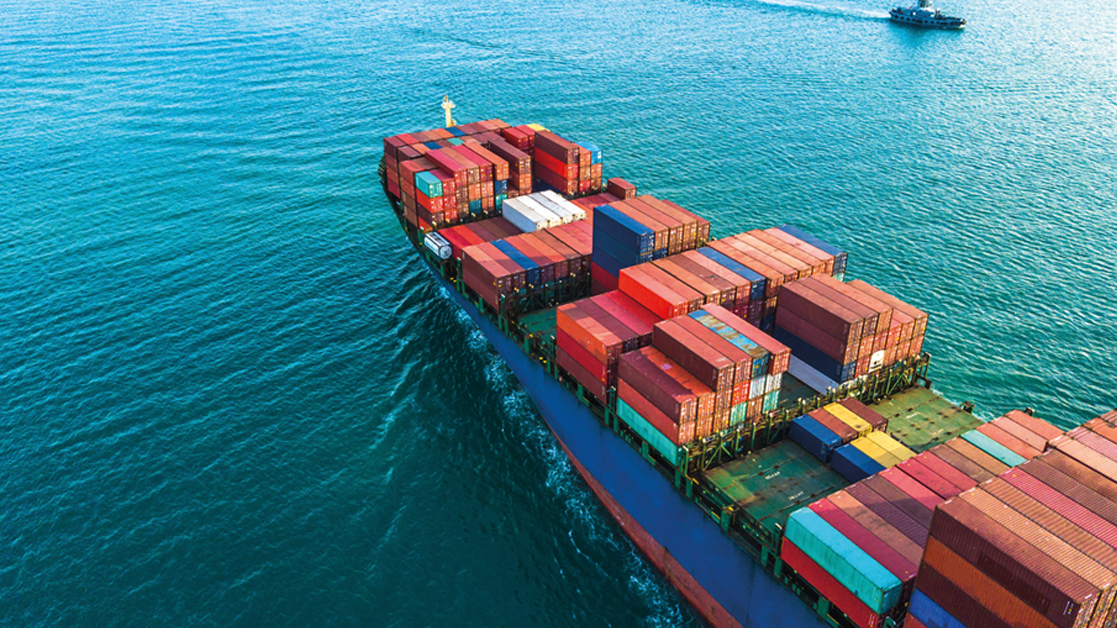Globalised supply chains are at increased risk of interruption by hostile actors, with Houthi attacks in the Red Sea forcing shipowners to reroute vessels. Rachel Watkinson delves into the risk landscape.
In March 2021, ongoing supply chain disruption from the Covid pandemic was compounded by the blockage of the Suez Canal by the Ever Given, a large container vessel. It took six days to remove the Ever Given from the banks of the Canal. Trade disruption was significant enough to exacerbate existing supply chain frailties; it took months for global supply chains to settle back into established patterns.
Shipping through the Suez Canal and the Red Sea is now once again imperilled, but this time by a threat more persistent, more disparate and entirely more sustained: Houthi attacks on commercial shipping. It comes at an inopportune moment for global trade, with the post-holiday reduction in goods exchange levelling off and volumes increasing.
The Houthi threat
Since November 2023, the Houthi Movement (Anṣār Allāh) has conducted both anti-ship missile and air- and sea-borne raids against shipping in the Bab al-Mandab Strait and in diverse locations across the Red Sea. Ostensibly, these are intended to exert economic pressure and halt the ongoing conflict in the Middle East.
As that conflict could continue for some time to come, we may see ongoing attempts to disrupt trade in the Red Sea.
The Houthis are nothing if not persistent. They have defied external intervention in the Yemeni Civil War for a decade, even pushing back Saudi Coalition forces. The international naval Operation Prosperity Guardian, announced in December, was initially slow to reduce attacks on civilian shipping.
At this year’s Munich Security Conference, the Houthi attacks on Red Sea shipping ranked alongside Ukraine and the ongoing Israel-Hamas conflict among major threats to global economic security[1]. With inflation pressures resulting from the conflict between Russia and Ukraine only just subsiding, further price shocks could be deeply destabilising.
Alternative routes
The Houthi attacks led multiple shipping companies to entirely re-route their vessels around the Cape of Good Hope, with global logistics giant Maersk joining others in announcing the change on 2nd January 2024.[2] The total journey from Rotterdam to Singapore via the Cape is 11,720 nautical miles, versus 8,440 nautical miles through the Suez Canal. The longer journey may incur higher operational costs, with higher crew wages and maintenance, though additional bunker fuel could be cheaper than the cost of transiting the Suez Canal.[3]
Alternatives such as the Panama Canal route, which would direct vessels from East Asian ports to cross the Pacific and skip the Indian Ocean entirely, have their own drawbacks. The Panama Canal is reliant on rainfall to allow larger ships to cross the Isthmus. It is currently dry season and, though the authorities are not restricting shipping at the moment, it is weather-dependent.[4]
Continued insurance support
The Red Sea and Suez Canal remain therefore the most direct, cost-effective path between the ports of Europe, the American East Coast and the manufacturing hubs of Asia. It is a challenging environment for insurers, but one continuously monitored, with the Joint War Committee meeting for regular updates on the situation.
Insurance has long supported international trade. Globalised supply chains, reliant on the Suez Canal and the Red Sea route, need to be maintained in order to avoid further inflationary shocks. At Liberty Specialty Markets, we are here to support clients through periods of geopolitical tensions. Insofar as insurance provision is concerned, our appetite remains consistent. After all, Marine War insurance is intended to provide coverage for events of this nature. With dynamic pricing to reflect our evaluation of the changing risk environment we continue to provide coverage to our clients.
[1] https://foreignpolicy.com/2024/02/15/munich-security-conference-biden-putin-ukraine-china-trump-presidency/
[2] https://swzmaritime.nl/news/2024/01/09/maersk-continues-to-re-route-around-cape-of-good-hope/#:~:text=Maersk%20has%20announced%20that%20all,their%20vessels%20around%20South%20Africa.
[3] Container ships on Cape route | Global Maritime Hub
[4] Exclusive: Panama Canal does not plan transit restrictions at least until April | Reuters

